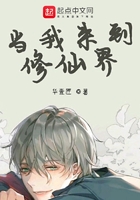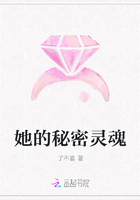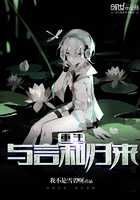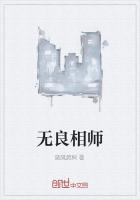“Moreover his hideous red tongue lolled out of his mouth. And for my part, I stopped in doubt and said, ‘What meaneth this screaming? Take another gold piece or yet another, but quit my side.’ Once more he began his strange mockery of courtesy and snarled: ‘Not gold, not gold, young sir,’ quoth he, ‘enough and to spare of that trash have I myself, as forthwith I will show you.’ Thereupon of a sudden it appeared to me as if the solid ground were as transparent as green glass, and the smooth earth were a round ball, wherein a multitude of goblins made sport with silver and gold. Heads up and heads down they rolled hither and thither, pelting one another in jest with the precious ore and blowing gold dust in perverse sport into one another’s eyes. My horrible comrade stood partly on the ground and partly within it; at times he bade the others reach him up handfuls of gold; then with harsh laugh, having shown them to me, he would fling them down clattering into the bottomless abyss. Thereupon he minded to show the piece of gold I had given him to the goblins below, and they laughed themselves half dead over it and hissed out at me. At length they all pointed their stained fingers at me, and more and more wildly, more and more densely, and more and more madly, the whole swarm came clambering up to me. A terror seized me as erst it had seized my horse; clapping the spurs into him I galloped, for the second time, I know not how far into the forest.
“But when at last I stayed my wild course the coolness of evening was around me. A white footpath—so it appeared to me—gleamed through the branches of the trees, and that methought must needs lead to the city. Full eager was I to work my way thither, but lo, a face, white, indistinct, with features constantly changing, was ever peering at me between the leaves. Try as I might to avoid it, it accompanied me wherever I turned. And being wroth thereat, I drave my horse against it, when the phantom gushed forth volumes of water upon us and forced us, willy-nilly, to retreat. So that at the last, perpetually diverting us step by step from the path, it left the way open only in one direction; and so long as we obeyed its guidance, though it kept close behind, it did us no harm.
“From time to time I eyed it and meseemed that the white face that had besprinkled us with foam belonged to a body equally white and of gigantic stature. Full oft I fancied that it was but a moving stream, but never did I gain any certainty on this matter. Horse and knight both wearied out, we yielded to the influence of the white man, who kept nodding his head as though he would say ‘Quite right, quite right!’ And so at the last we came out here to the end of the forest, where I saw grass and lake and your little hut, and the white man vanished.”
“’Tis well that he hath gone,” muttered the fisherman, and now he began to mind him how best his guest might return to his friends in the city. Whereupon Undine laughed slyly, and Huldbrand perceiving it addressed her: “Undine,” quoth he, “methought thou wert glad to see me here. Why then dost rejoice when there is talk of my departure?”
“Because thou cannot go,” returned Undine, “essay the task, an thou wilt: cross that swollen stream with boat or horse or thine own legs, according to thy fancy. Nay but do not try, for sure would be thy fate: thou wouldest be crushed by the stones and tree-trunks swirling down its course like lightning. And as for the lake, full well I know it; Father dares not adventure himself far enough out with his boat.”
Thereat Huldbrand arose with a smile that he might see whether Undine were right. The old man bore him company, and the maiden danced merrily along by their side. And in sooth Undine was right, and the knight found that he must need abide on the tongue of land that was now an island, until such time as the flood might subside.
As the three made their way back to the cottage, the knight bent his head to whisper in the maiden’s ear: “How is it,” quoth he, “my pretty Undine, art angry that I stay?”
“Ah,” saith she petulantly, “let me be. Had I not bitten thy hand, who knoweth how much more of Bertalda might not have appeared in the story?”















